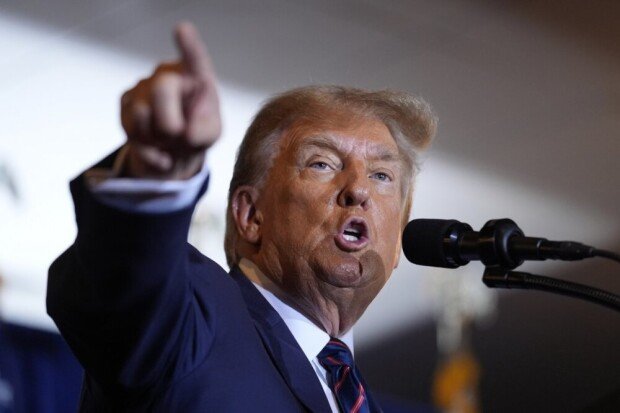Trump: I would impose tariff on Chinese imports of more than 60% if elected
Trump: I would impose tariff on Chinese imports of more than 60% if elected
Posted February. 06, 2024 07:45,
Updated February. 06, 2024 07:45

Former U.S. President Donald Trump said that he would apply more than 60% tariffs on Chinese imports if elected. This signals more robust protectionist policies than his previous term when a 25% tariff was imposed on Chinese items. According to Bloomberg, the suggested tariff rate is five times higher than the current average U.S. tariffs imposed on Chinese imports.
In an interview with Fox News on Sunday (local time), when asked if he was considering imposing a 60% tariff if elected, Trump replied maybe it’s going to be more than that”. When asked if he was thinking of imposing tariffs and trade restrictions at the same time, Trump said, “We must do it. China has been taking advantage of the U.S.”
The Washington Post also reported that Trump was considering imposing 60% tariffs on China. If re-elected, Trump claimed that he would revoke China’s Most Favored Nation status and apply Column II tariffs, which are imposed on non-MFNS with a 40% average tariff rate. Adding a universal basic tariff rate that imposes up to 10 percentage points on all foreign manufactured items would raise tariff rates to 60%.
During his term in 2018 and 2019, the former president applied Trade Act Article 301 to impose high tariffs of 25% on Chinese imports because China had not implemented the agreement with the U.S., not because of protectionist policy. He claimed that China tried to destroy the U.S. steel industry.
If the 60% tariff is implemented, it seems inevitable that the current derisking approach in which the U.S. and China economically collaborate in certain areas while confronting militarily would be replaced with decoupling.
Rising tensions between the two countries reduced China’s exports to the U.S. by 13.1%. Raising tariff rates by five times would deal a blow to the U.S. economy as well. The Tax Foundation, a U.S. think tank, expressed concerns that an increase in U.S. consumer prices would be inevitable without low-priced Chinese imports, resulting in annual costs of 1.5 trillion dollars.
“China does not want me to be president,” said Trump. “The Chinese stock market crashed,” he said last month when he won the Republican presidential primaries in Iowa and New Hampshire.
After his remarks became public, many investors in the global financial market bet on the appreciation of the U.S. dollar, a safe asset. U.S. investment bank Goldman Sachs also released a report stating that Chinese investors cited the possibility of former President Trump being re-elected as a major investment risk along with the economic slowdown, falling stock prices, and a sluggish real estate market.
On the other hand, Trump maintained an ambiguous attitude, avoiding answering questions such as the possibility of a trade war with China and whether the United States would intervene militarily in the event of China's invasion of Taiwan. “I like Chinese President Xi Jinping a lot, he was a very good friend of mine during my term,” he said. When asked about U.S. support for Taiwan, he declined to comment, saying that it could undermine U.S. negotiating power with China, leaving room for negotiation on issues involving interest conflict.
weappon@donga.com







